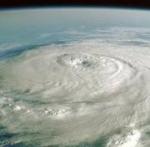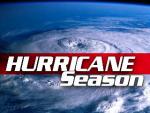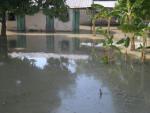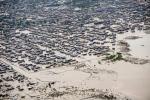Lessons From the Storm: What Haiti Can Teach Us
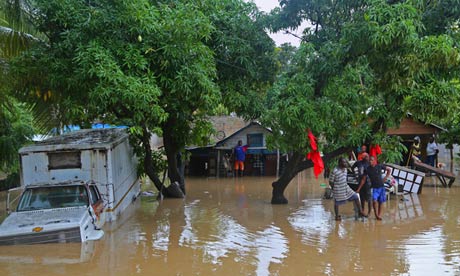 Given the extent of internal displacement in Port-au- Prince and environmental degradation beyond, Haiti remains vulnerable to flooding. You can see the damage caused by Hurricane Sandy in this Washington Post video clip. There will be much reporting in the days ahead about the loss of lives, homes, and livelihoods. Drawing on his experience living through the earthquake and reflecting upong Hurricane Sandy's impact, Jonathan Katz takes a moment to remind us of Haitian resilience and solidarity, qualities we can learn from.
Given the extent of internal displacement in Port-au- Prince and environmental degradation beyond, Haiti remains vulnerable to flooding. You can see the damage caused by Hurricane Sandy in this Washington Post video clip. There will be much reporting in the days ahead about the loss of lives, homes, and livelihoods. Drawing on his experience living through the earthquake and reflecting upong Hurricane Sandy's impact, Jonathan Katz takes a moment to remind us of Haitian resilience and solidarity, qualities we can learn from.
